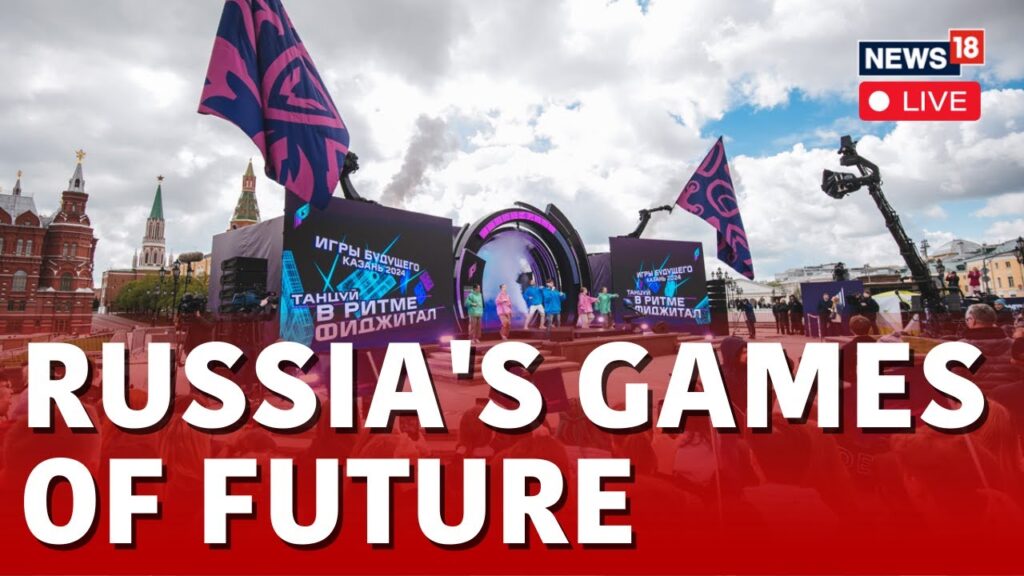Games of the Future
- Games of the Future 2025: Global gaming hubs status in UAE’s favour from Korea, Los Angeles, say industry leaders

The future of gaming is poised to be shaped by advancements in technology, creativity, and the blending of physical and virtual worlds. Here are some key trends and possibilities for games of the future:
1. Virtual Reality (VR) and Augmented Reality (AR)
- Immersive Experiences: VR will evolve into fully immersive environments where players can interact in 360-degree worlds. AR will blend real-world settings with digital elements, allowing games to be played in everyday spaces.
- Sensory Integration: Future VR/AR may involve haptic feedback suits, smell simulators, and other sensory technologies to make the experience more realistic.
2. Artificial Intelligence (AI)
- Smarter NPCs: AI will make non-playable characters (NPCs) more intelligent and adaptable, offering more lifelike reactions and learning from player behavior.
- Procedural Generation: AI could generate entire game worlds, quests, and narratives dynamically, providing endless, personalized content tailored to individual players.
3. Cloud Gaming
- Streaming Services: As internet speeds increase, cloud gaming will remove the need for high-end hardware, allowing players to stream games directly to any device. This could open up high-quality gaming to broader audiences.
- Cross-Platform Play: Cloud gaming will likely enhance cross-platform play, breaking down barriers between console, PC, and mobile gamers.
4. Metaverse and Persistent Worlds
- Social and Economic Ecosystems: Games could evolve into massive, interconnected virtual worlds (like a metaverse) where players not only game but socialize, work, and trade in real-time, creating digital economies that mirror real-world ones.
- User-Generated Content: Players might create their own in-game items, worlds, and experiences, with ownership verified by blockchain technology.

5. Hyper-Realistic Graphics and Physics
- Real-Time Ray Tracing and Physics Engines: Games will achieve unprecedented visual fidelity, with real-time ray tracing and highly accurate physics making virtual worlds indistinguishable from reality.
- 3D Scanning and Photogrammetry: Players and developers could use 3D scanning technology to bring real-world objects and people into the game, allowing for hyper-realistic avatars and environments.
6. Biofeedback and Brain-Computer Interfaces (BCIs)
- Mind-Controlled Gaming: BCIs may allow players to control games with their thoughts, creating a new level of interactivity and immersion.
- Emotional Feedback: Games could read a player’s emotional state through sensors, adjusting the difficulty or narrative based on stress levels, excitement, or engagement.
7. Sustainability and Green Gaming
- Eco-Friendly Gaming: Future games and gaming systems may be designed with sustainability in mind, reducing energy consumption and promoting eco-friendly practices within game narratives.
8. Ethical and Inclusive Design
- Diverse Representation: As gaming continues to grow globally, there will be an increasing focus on diversity and inclusion, with more games featuring characters from a wide range of cultures, identities, and backgrounds.
- Ethical AI: Developers will likely need to focus on ethical AI to prevent abusive behavior or toxic environments, ensuring games are safer and more inclusive for all players.
9. Blockchain and NFTs
- Digital Ownership: Blockchain could allow for secure ownership of digital assets within games, like skins, weapons, or entire game worlds. Players could trade, sell, or collect these items as NFTs, creating a true sense of value and ownership.
10. Collaborative Storytelling and Shared Universes
- Shared Narratives: Games of the future might involve more collaboration between players in creating and shaping the story, with choices and actions of one player affecting others in a shared universe.
- Persistent Storylines: Narratives may evolve over time, with events unfolding in real-time and changing based on global player actions, creating a living, breathing game world.
Read More:
Holi Sale on Amazon 2025 : अमेज़न होली सेल
Free Redeem Code.in
Amazon ₹100 Off Coupon Code : Free Amazon Pay Rewards
Free Redeem Code.in
Amazon Promo Codes Today : Free $15 off orders over $50
Free Redeem Code.in
Amazon Promo Codes 80% Off : Active Free promo codes 2025
Free Redeem Code.in
Latest Blinkit Offers Available Today
Free Redeem Code.in
Get Coupon Code Free – 100% Working Promo Codes to Save Online
Free Redeem Code.in


